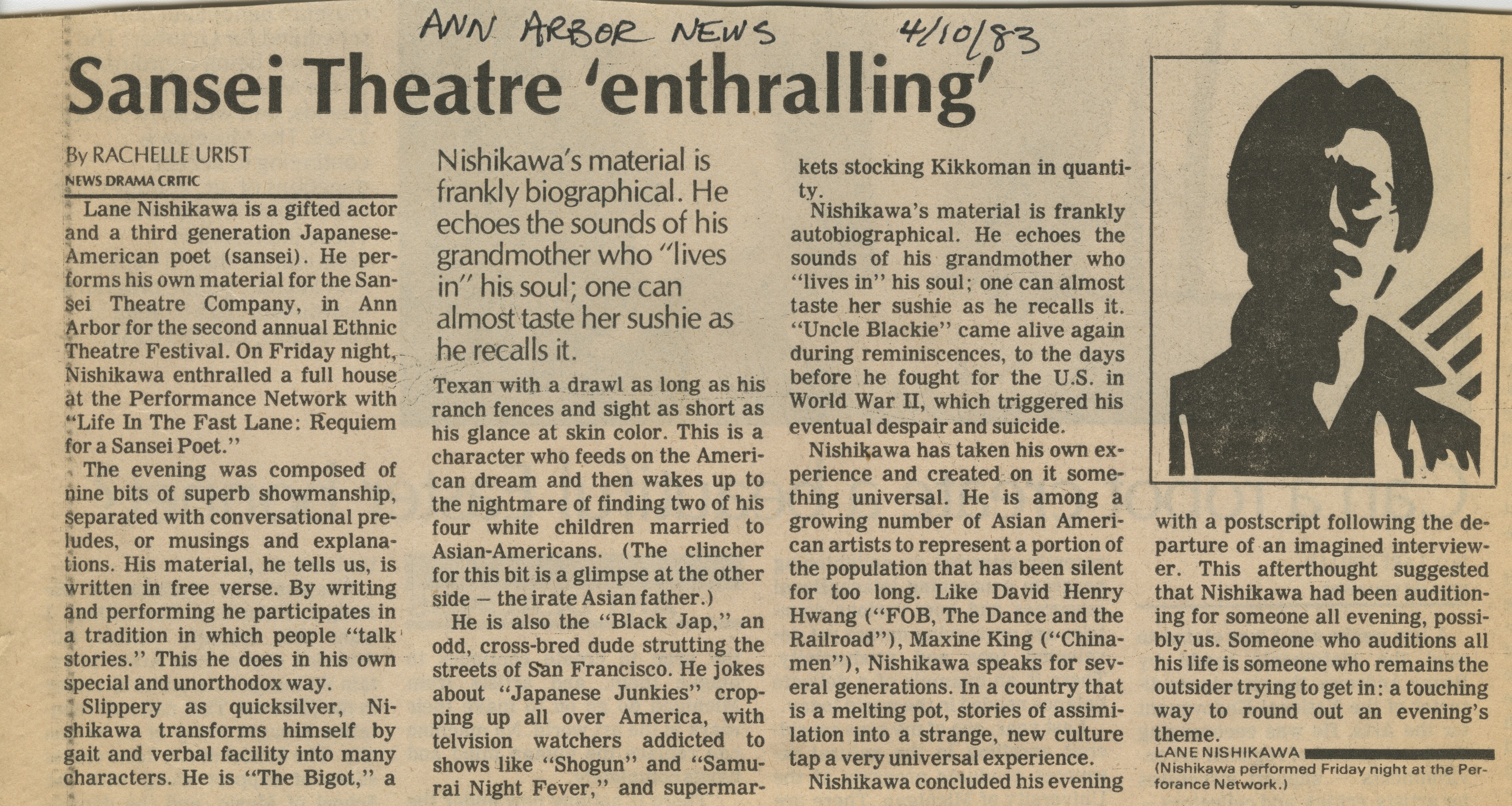Sansei Theatre 'enthralling'

Sansei Theatre Enthralling
By RACHELLE URIST
NEWS DRAMA CRITIC
Lane Nishikawa is a gifted actor and a third generation Japanese-American poet (sansei). He performs his own material for the Sansei Theatre Company, in Ann Arbor for the second annual Ethnic Theatre Festival. On Friday night, Nishikawa enthralled a full house $t the Performance Network with “Life In The Fast Lane: Requiem fora Sansei Poet.”
The evening was composed of nine bits of superb showmanship, Separated with conversational preludes, or musings and explanations. His material, he tells us, is written in free verse. By writing and performing he participates in a tradition in which people “talk stories.” This he does in his own special and unorthodox way.
Slippery as quicksilver, Nishikawa transforms himself by gait and verbal facility into many characters. He is “The Bigot,” a Texan with a drawl as long as his ranch fences and sight as short as his glance at skin color. This is a character who feeds on the American dream and then wakes up to the nightmare of finding two of his four white children married to Asian-Americans. (The clincher for this bit is a glimpse at the other side - the irate Asian father.)
He is also the “Black Jap,” an odd, cross-bred dude strutting the streets of San Francisco. He jokes about “Japanese Junkies” cropping up all over America, with television watchers addicted to shows like “Shogun” and “Samurai Night Fever,” and supermarkets stocking Kikkoman in quantity.
Nishikawa’s material is frankly autobiographical. He echoes the sounds of his grandmother who “lives in” his soul; one can almost taste her sushie as he recalls it. “Uncle Blackie” came alive again during reminiscences, to the days before he fought for the U.S. in World War II, which triggered his eventual despair and suicide.
Nishikawa has taken his own experience and created on it something universal. He is among a growing number of Asian American artists to represent a portion of the population that has been silent for too long. Like David Henry Hwang (“FOB, The Dance and the Railroad”), Maxine King (“Chinamen”), Nishikawa speaks for several generations. In a country that is a melting pot, stories of assimilation into a strange, new culture tap a very universal experience. Nishikawa concluded his evening
with a postscript following the departure of an imagined interviewer. This afterthought suggested that Nishikawa had been auditioning for someone all evening, possibly us. Someone who auditions all his life is someone who remains the outsider trying to get in: a touching way to round out an evening’s theme.
LANE NISHIKAWA
(Nishikawa performed Friday night at the Per-forance Network.)
________________________________
Nishikawa's material is frankly biographical. He echoes the sounds of his grandmother who "lives in" his soul; one can almost taste her sushie as he recalls it.